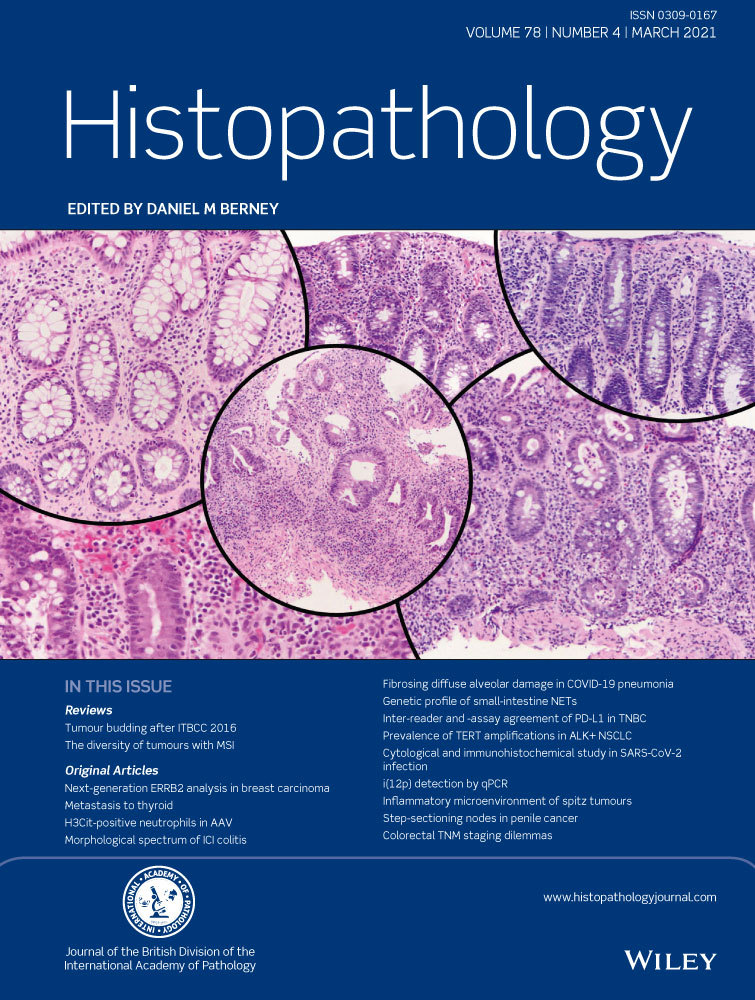Next-generation assessment of human epidermal growth factor receptor 2 gene (ERBB2) amplification status in invasive breast carcinoma: a focus on Group 4 by use of the 2018 American Society of Clinical Oncology/College of American Pathologists HER2 testing guideline
Abstract
Aims
The American Society of Clinical Oncology/College of American Pathologists (ASCO/CAP) updated the testing guideline in 2018 to address issues arising from uncommon human epidermal growth factor receptor 2 (HER2) fluorescence in-situ hybridisation (FISH) results according to the 2013 guideline. Next-generation sequencing (NGS) may be used to better classify patients. The aim of this study was to assess the ERBB2 amplification status of invasive breast carcinoma with equivocal HER2 immunohistochemistry (IHC) results by using NGS, focusing on Group 4 (HER2/CEP17 ratio of <2.0; average HER2 signals/cell of ≥4.0 and <6.0).
Methods and results
We retrospectively reviewed HER2 FISH and NGS data of HER2 IHC-equivocal breast carcinomas at our centre between January 2009 and September 2019, wherein all three assays were performed on the same tissue block, and compared HER2 FISH results, according to the 2018 ASCO/CAP guideline, and the ERBB2 amplification status determined with NGS. A total of 52 HER2 FISH and NGS results from 51 patients with HER2 IHC-equivocal breast carcinomas were reviewed. The cohort included eight cases classified as 2018 ASCO/CAP in-situ hybridisation Group 1, three classified as Group 2, three classified as Group 3, 14 classified as Group 4, and 24 classified as Group 5. Thirteen of 14 (92.9%) Group 4 (HER2-negative) cases were classified as ERBB2-non-amplified by the use of NGS; the discordant case was later classified as Group 1 with alternative sample FISH testing. NGS revealed no significant difference in somatic mutations or copy number alterations between Groups 4 and 5.
Conclusions
Our NGS findings support the reclassification of HER2 FISH-equivocal cases as HER2-negative under the 2018 ASCO/CAP guideline.
Conflicts of interest
P. Razavi has received honoraria for consulting and working on advisory boards for Novartis, AstraZeneca, and Foundation Medicine, and institutional research support from GRAIL, Inc. M. Ladanyi has received honoraria for ad-hoc advisory board participation from Merck, Astra-Zeneca, Bristol Myers Squibb, Takeda, Lilly Oncology, and Bayer, and research support from LOXO Oncology, Merus, and Helsinn Therapeutics. The remaining authors have declared no conflicts of interest.




